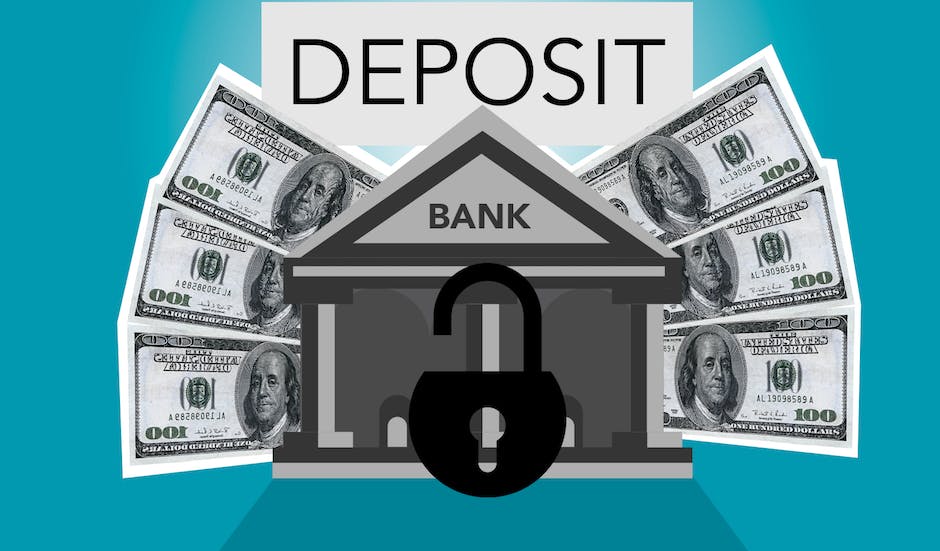Amid rapidly evolving technological landscapes and escalating cyber threats, businesses are substantially leaning towards fortifying their digital defenses. While cybercrime rates continue to spike, it’s palpable that many organizations are still grappling with the complex intricacies of cyber security, the significance of the services offered, and how to select the most adept cyber security services companies.
This discourse dovetails into the realm of cyber security, elucidating various facets such as the demystification of these services, the distinctive types available, the indispensable role of cyber security companies, the latest trends redefining this sector, and the paramount considerations in the selection process. Undertaking a detailed exploration of these essential topics provides a salient roadmap in navigating the sometimes mystifying terrain of cyber security services.
Demystification of Cyber Security Services Companies
Unveiling Cybersecurity Services: The Shield of the Digital Age
As the digital sphere continues to mature, the issues of data breaches, hacking, and other forms of cyber-attacks have launched themselves into the spotlight. You’ve heard about them, read about them, and maybe even been a victim of them. So now begs the question, how can they be thwarted? Enter cyber security services – the silent warriors warding off menacing cyber threats.
Cybersecurity services come in a variety of forms, each designed to tackle a specific facet of cyber protection. Ranging from
- firewall and Intrusion Prevention Systems (IPS)
- to data encryption and antivirus software
, these services establish an impermeable fortress around delicate information.
One of the cardinal offerings in the cybersecurity segment is Vulnerability Assessment and Penetration Testing (VAPT). This serves to identify, quantify, and prioritize vulnerabilities in a system. Pushing this one step further is penetration testing, also dubbed as ethical hacking, where simulated attacks on a system determine its potential weak points.
Endpoint security services have also emerged on the frontline of the cyber defense world. With the number of devices connected to networks shooting off the charts, establishments are no longer limited to a fixed, secure location. Hence, securing every endpoint that connects to a network – be it laptops, mobile devices, or IoT devices – is pivotal. With endpoint security, potential attack paths into sensitive networks are effectively sealed off.
Moreover, the essence of cybersecurity services goes beyond just plugging holes in virtual walls. Being outfitted with top-notch security technology is great, but a single human error can still lay waste to that. To that end, cybersecurity services also encompass user awareness training to caution against phishing scams, sketchy emails, and unauthorized downloads.
Now, on to the pressing question – why are these services critical?
As technology burgeons, the virtual landscape becomes a playground for nefarious cyber activities. The onus of securing personal or business data doesn’t just lie on Fortune 500 companies or technology conglomerates. From e-commerce websites to personal blogs, virtually every online presence is a potential target for sly hackers operating in the shadows.
The cost of a single cyber-attack can be devastating. According to a 2020 report by Cybersecurity Ventures, the global cost of cybercrime is projected to hit $6 trillion annually by 2021. The same report suggests that a business will fall victim to a ransomware attack every 11 seconds by 2021.
Cybersecurity services are the guardians that stand between businesses and a virtual apocalypse. In the era of globalization, a strong cyber defense ensures the continuity of services, maintains customer trust, and upholds the brand reputation.
Ultimately, the value of cybersecurity services is an investment in harm prevention and risk management. In an increasingly interconnected world, the potency of the cyber shield will define not just the survival but the prosperity of the digital world. It’s not optional anymore; it’s a necessity.

Types of Cyber Security Services
Branching from these vistas into the multifaceted realm of cybersecurity, we delve into a more specialized stratum – the offerings of Cyber Threat Intelligence (CTI) services.
Capitalizing on anticipatory measures, these services constitute a proactive approach to cyber defense. They monitor potential threats, dissecting and analyzing them in the context of a company’s unique digital landscape. With the intricate profiling of threats, companies can foresee imminent avenues of attack, thereby fortifying their cyber architecture preemptively. Above the prevalent reactive solutions, CTI delineates future attack vectors, turning prediction into potent cyber armament.
Further extending the defenses are Managed Security services – edging close to a complete cybersecurity solution. These are third-party service providers overseeing a company’s cybersecurity operations round-the-clock. They assume responsibility for identifying and alleviating threats, managing and tuning security systems, and, generally, ensuring the optimal performance of cyber defenses. With heightened dedication to security and cyber expertise, managed services enable businesses to focus on core operations undistracted by looming cyber threats.
In the second-line defense, companies can leverage Security Incident and Event Management (SIEM) services. These tools are versatile watchfires efficient in logging security incidents and events, their analysis, and reporting. SIEM services collect and aggregate data, darting across vast digital terrain and detecting abnormalities or suspicious activities pointing toward potential breaches. With real-time monitoring and automated alerts, they reveal the picture of cybersecurity status dynamically, with a granularity that leaves no room for oversights.
For the paradox of human strength in cybersecurity, there are biometric security services – a step beyond what we conventionally recognize as passwords. These services use human biological data – like fingerprints, facial recognition, and voice patterns – that are nearly impossible to replicate, thereby providing an extra layer of protection.
Coming to damage control measures, there’s Disaster Recovery as a Service (DRaaS). Echoing its name, the service bounces back crucial systems and data after cyber-attacks or system failures. It’s an assurance of business continuity and stability amid cyber adversities.
On the far end of the spectrum, we have Compliance Auditing services as a measure to ensure your organization’s cybersecurity systems adhere to all legally mandated regulations and standards. These audits ensure that you are not just protected but are defending your cyber terrain within the parameters of legal and industry best practices.
In the grand scheme of cybersecurity services, there’s no one-size-fits-all solution. Each of these services targets unique aspects of cybersecurity, some focusing on anticipation and prevention, others on real-time protection, damage control, or regulatory compliance. It’s a selection influenced by an organization’s risk profile, industry regulations, strategic objectives, and compliance requirements. As the cyber landscape’s complexity continues to evolve, leveraging a robust combination of these services may well be the best course of action.

The Role of Cyber Security Companies
Diving deeper into the scope of cybersecurity services, Cyber Threat Intelligence (CTI) forms an integral piece of the jigsaw. Dutiful cybersecurity service providers allocate significant resources towards CTI. By critically analyzing information about potential attack sources, CTI enables organizations to robustly defend against imminent threats – almost like a sixth sense for cyber defense.
Opting to contract out part, or all, of their cybersecurity requirements, more businesses are leaning towards Managed Security Services (MSS). The benefits are two-fold – it allows organizations to keep pace with evolving threats and also provides access to security expertise that might not otherwise be economically feasible. Not to mention, it lets in-house IT teams focus on core business tasks rather than worrying about organizational security.
As we move further down the cybersecurity spectrum, Security Incident and Event Management (SIEM) services play a pivotal role. In a cyber-world dense with sophisticated threats, SIEM provides a bird’s eye view of an organization’s information security. By collecting and correlating data from multiple sources, SIEM helps filter out the noise, thus enabling swift response to genuine security incidents.
The use of Biometric Security Services continues to penetrate mainstream cybersecurity due to its inherent strength in authentication. With password theft becoming pedestrian, the implementation of biometric data as a security measure adds another robust layer of protection. Fingerprints, eye scans, voice recognition – these are unique traits, almost impossible to replicate, thereby bolstering security regulations.
In addition, no rational planner would disregard the possibility of a disaster striking. To account for this, Disaster Recovery as a Service (DRaaS) comes to the rescue. Providing cloud-based data recovery solutions it minimizes data loss and downtime during catastrophic situations. The emphasis is more on resilience and getting back to ‘business as usual’ than merely resisting attacks.
Lastly, let’s discuss Compliance Auditing Services. A well-fortified security system doesn’t just ward off cyber attacks; it also meets industry-specific regulations and standards. Compliance Auditing services ensure that organizations are up-to-speed with these compliances, consequently avoiding fines and further bolstering their reputation as secure service providers or business partners.
In essence, cybersecurity service companies serve as an incredibly robust, multi-layered shield, protecting organizations from the ever-growing, ever-changing landscape of cyber threats. A sound investment, indeed. The digital age waits for no one, after all.

Key Trends in Cyber Security Services Companies
As we venture deeper into the digital age, the horizons of cybersecurity are rapidly expanding. The next wave to break into mainstream consciousness encompasses several emerging trends. Namely, Cyber Threat Intelligence (CTI), Managed Security Services (MSS), Security Incident and Event Management (SIEM) services, Biometric Security Services, Disaster Recovery as a Service (DRaaS), and Compliance Auditing Services.
CTI has been hitting the radars of companies eager to outpace potential threats. By implementing CTI, companies leverage advanced intelligence capabilities and technologies to detect and predict cyber threats before they strike. As a proactive approach, CTI is gaining traction as an essential armor in any cybersecurity strategy.
Managed Security Services, on the other hand, swoop in to take the load off companies dealing with the sprawling complexities of cyber protection. They provide round-the-clock monitoring and management of cyber threats. Taking advantage of this external expertise allows businesses to focus on core operations while enjoying high-level security.
Security Incident and Event Management (SIEM) services are garnering attention for their ability to guarantee robust security vigilance. These services provide real-time analysis of security alerts generated by applications and network hardware, making them a great tool for monitoring, detecting, and responding to cybersecurity incidents.
Drawing on the unique biological markers of individuals, Biometric Security Services offer an extra layer of security that’s hard to infiltrate. A fingerprint, a retinal pattern, or a voice print is unduplicable, making this an irresistible addition to the cybersecurity toolkit. The uptake of biometrics across industries shows how businesses are waking up to their capability for barring unauthorized access.
Business continuity is putting DRaaS at the frontlines of the cybersecurity landscape. The service aims to limit the gravitas of potential cyber threats by ensuring a company can pick up from the last marker before disaster strikes. Companies now regard DRaaS as a business survival tool rather than a fancy add-on.
Last but not least, Compliance Auditing Services tops off this list of new guard heroes in cybersecurity. With data protection regulations tightening globally, enterprises are turning to these services to avoid legal mishaps. An effective compliance audit service ensures a company’s operations and procedures adhere to regulatory requirements, further reinforcing its cybersecurity framework.
Conclusively, these services not only lash out against cyber threats but also provide the tools necessary to manage and minimize damage when under attack. Even better, they offer this protection while ensuring a company’s operations stay within the bounds of regulating bodies. Adopting these services is underway, no doubt. How quickly and thoroughly, however, is a question that companies urgently need to answer to ensure they stay one step ahead of cybercriminals.

Choosing Cyber Security Services Companies
As we venture forth into the unseen web of cyber security services companies selection, it’s essential to examine other core factors necessary in making an informed choice of your security partner.
Beginning with the robustness of technology and innovation, a competent provider’s arsenal should hold top-tier innovations in the security tech sphere. Security technology is as potent as its adaptability to face the ever-evolving cyber threats. The provider should be adept in utilizing advanced machine learning and artificial intelligence to enhance threat detection and timely response.
Speaking of responses, Incident Response (IR) is another critical aspect. Rapid detection of threats loses substance if the response to the incident is not immediate and efficient. You’d want a provider that not only detects and reports a breach but also delivers a proficiently analyzed course of action to address it.
Moreover, don’t overlook the importance of Threat Hunting. Even with the most advanced defenses, proactiveness defines a provider’s quality. A worthy cybersecurity team will constantly hunt for unknown threats and possible entry points in your digital perimeter, saving you from dormant cyber time bombs.
Checking the past record and reputation of the cybersecurity service provider can also shine a light on their competence. History doesn’t always predict future performance accurately, but it does provide a blueprint of their abilities and reliability. Renowned tech-review platforms and user reviews are good starting points to unearth such details.
Furthermore, the scalability of services is an absolute must, as your business is not static; it will grow and evolve. Ergo, cybersecurity services should be dynamic and grow with your enterprise, adjusting to new challenges along the way.
The assessment of Service Level Agreements (SLA) is equally essential when choosing a cybersecurity provider. Why? These contracts outline exactly what you’re getting. They explain response times, containment, and recovery expectations, giving you a clear picture of the service benchmarks and redressal measures in case of unmet expectations.
Finally, yet importantly, verify the cybersecurity provider’s credentials. This isn’t mere paperwork; it’s an assurance of quality. Look out for certifications such as ISO 27001, SOC 1, and SOC 2, as they are slowly becoming a standard for security providers.
In the realm of cybersecurity, settling is not an option. It is much more than a purchase – it’s an investment. An investment towards securing everything your enterprise stands for. As the digital waves ebb and flow, your cybersecurity service provider will be your fortress. Choose wisely.

Adopting a diligent and informed approach to understanding and leveraging cybersecurity services is paramount for businesses wishing to thrive in today’s digital world. An adept understanding of the services being rendered, the role of cyber security companies, and the emerging trends shaping this sector can substantially enhance the fortification of a business’s cyber infrastructure.
Furthermore, a discerning approach to choosing a security services company rooted in its expertise, service offerings, and adaptability to emerging threats and technology is essential. As cyber threats continue to metamorphose, companies that stay abreast of these dynamics and continually refine their strategies to provide top-tier services will invariably prove to be indispensable partners in the continuous fight against cybercrime.